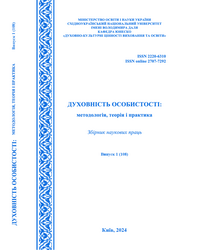EDUCATION IN THE MODERN WORLD
DOI:
https://doi.org/10.33216/2220-6310/2024-108-1-28-40Keywords:
education, upbringing, outlook, pupils, students, societyAbstract
The global crisis of a social, environmental and anthropological nature has put the problem of human survival in the first place. Today, society has entered a phase of existence where it is faced with the need to prepare the next generation to live in its consciousness as the world is rapidly developing and globalizing. When solving this new civilized task, such qualities of education as adaptability and the ability to quickly transform in such a way as to keep up with the latest achievements of science and technology, changes in nature, society, and culture become necessary. The overarching task of education is to become anticipatory education in its essence. This will become possible if the modern education system is reformed. Anticipatory learning involves not only targeting the predictability of scientific knowledge (specific, technological or general theoretical). It is connected with the choice of those moral principles that will become the most significant in the near and distant future.
Among the factors that have a direct impact on the future, the sphere of education is beginning to occupy the most important place. Among the mass professions on Earth, the teaching profession today is directly related to the image of the future.
The article reveals the existing strategies of pedagogy in the educational practice of the 21st century and their analysis. The described advantage of the planetary-personal (noospheric) upbringing paradigm', which arises from the fact that it unites culture, science and education, gives a complete picture of the universe and man as a planetary personality.
The article outlines an educational paradigm for the child's transition from an egocentric to a polycentric model of understanding the world.
The experience of Japan is cited among the latest technologies. This experience reveals a university whose educational concept is primarily based on moral guidelines.
The article highlights the main directions of reforming the modern education system.

